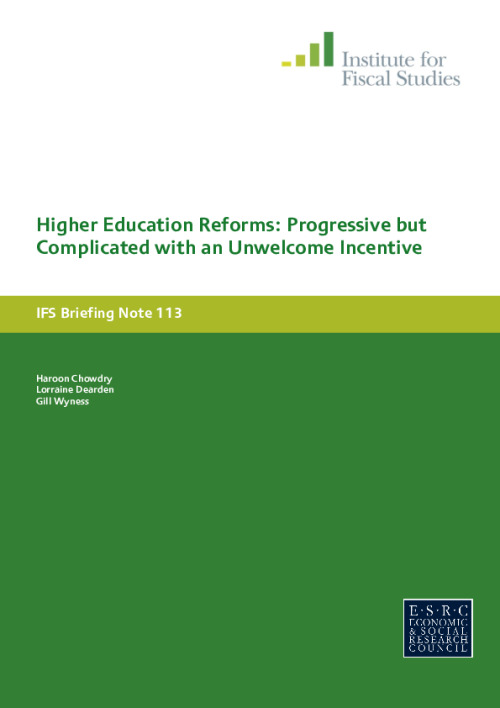Details of the proposed changes to higher education (HE) have been finalised ahead of tomorrow's vote in the House of Commons on the raising of the cap on tuition fees to £9,000. We find that:
- By decile of graduate lifetime earnings, the Government's proposals are more progressive than the current system or that proposed by Lord Browne. The highest earning graduates would pay more on average than both the current system and that proposed by Lord Browne, while lower earning graduates would pay back less. By decile of parental income, graduates from the poorest 30% of households would pay back less than under Lord Browne's proposed system, but more than under the current system. While all graduates from families with incomes above this would pay more, graduates from the 6th and richest (10th) deciles of parental income would pay back the most under the proposed system.
- The Government announced today that it will up-rate the threshold above which graduates pay back their loan annually in line with earnings (as was proposed by Lord Browne) rather than at 5 year intervals which makes the system more progressive than originally proposed.
- The National Scholarship fund - through which the taxpayer will cover the third year of fees for students from low income families who attend universities charging over £6,000 a year - will cost the government money in the short term. But we estimate that in the long term the net impact will be to strengthen the public finances slightly (by around £11m a year) if average fee levels are around £7,500 per year. This is mainly because universities will be required to cover the cost of fees for these students in their first year thereby reducing the taxpayer subsidy.
- The new system is less transparent than the current system and that proposed by Lord Browne, with a more complex system of student support and interest rates. The new system also generates perverse incentives - for example the National Scholarship fund provides a financial incentive for universities charging over £6,000 a year to turn away students from poorer backgrounds.









